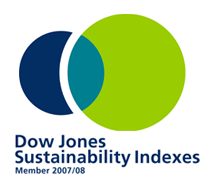 July 2008 the British government launched an ambitious strategy to “green” its ICT use, it is one of the first worldwide with such an ambitious plan. After one the carbon emissions have already been reduced by over 12 000 tonnes.
July 2008 the British government launched an ambitious strategy to “green” its ICT use, it is one of the first worldwide with such an ambitious plan. After one the carbon emissions have already been reduced by over 12 000 tonnes.
Indeed the ICT industry has a sizeable carbon footprint with that one of the aviation industry. To make everything possible to minimize it is utilities.
Key public bodies among which the Ministry of Defence, the Ministry for Transport or the Department for Health have accepted to be evaluated in link with ITC on subjects such as energy efficiency, waste management, supplier management, procurement or behaviour.
A survey demonstrates that 83% of the IT managers in the public sectors have this year already taken action to reduce their carbon footprint. – In one year only! Who said the public sector was not flexible and dynamic … in the UK at least.
To reach their target and to improve, several actions have been set up. A few sample among others:
– New specific criteria to select providers
– EU and global standard have been used to specify ways of counting the greenhouse gas emission throughout the entire lifecycle from sourcing raw materials, though to manufacture, distribution, use and disposal.
You will find the detailed survey outcome (very well explained!) of the study on the following link : here
What I like a lot in the approach is that the British government has been able at the same time to implement actions measured on the short term but as well on the long term with deeper impact.
 *TIC : Technologies de l’information et des Télécommunications.
*TIC : Technologies de l’information et des Télécommunications. France Telecom, leader on the French market and previously a company state reinvented itself in a very “fast and efficient” manner into a 21st century Telecom company. Today the company is under the spotlights for other reasons. Two desperate acts: two employees have chosen to end their lives for reasons specifically linked to their work. It has to be added to the 6 suicides of this summer and the 22 since February 2008 for about 100 000 employees.
France Telecom, leader on the French market and previously a company state reinvented itself in a very “fast and efficient” manner into a 21st century Telecom company. Today the company is under the spotlights for other reasons. Two desperate acts: two employees have chosen to end their lives for reasons specifically linked to their work. It has to be added to the 6 suicides of this summer and the 22 since February 2008 for about 100 000 employees. France Telecom, premier opérateur de téléphonie française qui a « magnifiquement » opéré sa transformation vers l’ère de l’Internet et la téléphonie mobile. Aujourd’hui sous les feux de l’actualité pour d’autres raisons. Deux actes désespérés cette semaines : deux employés ont choisi de mettre fin à leur vies pour des raisons directement liées à leur travail. Cela s’ajoute à une liste de 6 cet été et 22 depuis février 2008 pour environ 100 000 salariés.
France Telecom, premier opérateur de téléphonie française qui a « magnifiquement » opéré sa transformation vers l’ère de l’Internet et la téléphonie mobile. Aujourd’hui sous les feux de l’actualité pour d’autres raisons. Deux actes désespérés cette semaines : deux employés ont choisi de mettre fin à leur vies pour des raisons directement liées à leur travail. Cela s’ajoute à une liste de 6 cet été et 22 depuis février 2008 pour environ 100 000 salariés. Having been strongly involved for nearly 10 years in the fair-trade,
Having been strongly involved for nearly 10 years in the fair-trade,  Impliquée depuis bientôt 10 ans dans le commerce équitable, la société
Impliquée depuis bientôt 10 ans dans le commerce équitable, la société  Recently a lot has been said about green IT. But if we tried to understand what it covers in the reality, I don’t have the feeling there are major innovations. Basically the main thing about it seems to be: Turn of your computer in the evening, when possible use teleconferences instead of travelling. From a constructor perspective it is about building (or trying to build) more energy efficient device and propose (or try to propose) recycling. However most of the time those initiatives are taken on a “good willing individual basis” with the main purpose of reducing costs. I am not saying it does not make sense: I know reducing costs make sense. I am just wondering if it could be more.
Recently a lot has been said about green IT. But if we tried to understand what it covers in the reality, I don’t have the feeling there are major innovations. Basically the main thing about it seems to be: Turn of your computer in the evening, when possible use teleconferences instead of travelling. From a constructor perspective it is about building (or trying to build) more energy efficient device and propose (or try to propose) recycling. However most of the time those initiatives are taken on a “good willing individual basis” with the main purpose of reducing costs. I am not saying it does not make sense: I know reducing costs make sense. I am just wondering if it could be more. The Dow Jones sustainability index (DJSI)
The Dow Jones sustainability index (DJSI) Le Dow Jones sustainability index (DJSI)
Le Dow Jones sustainability index (DJSI)  IBM Global services through its “institute for business value”
IBM Global services through its “institute for business value”